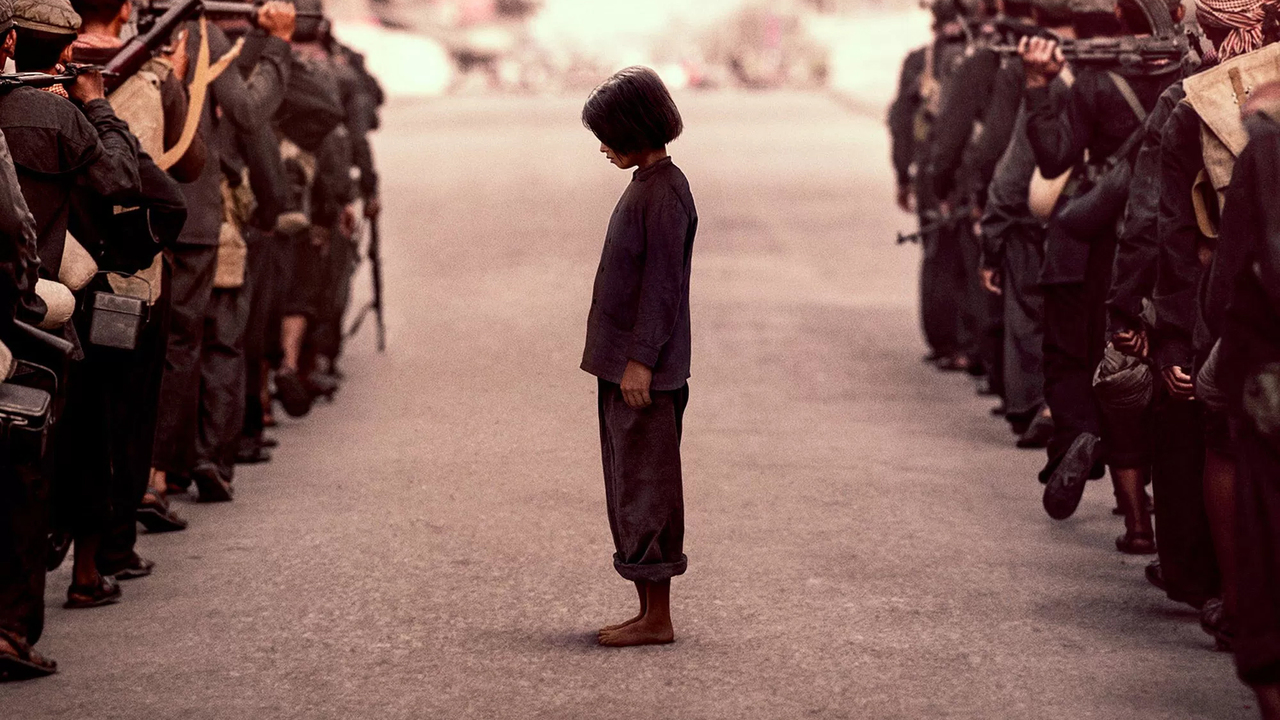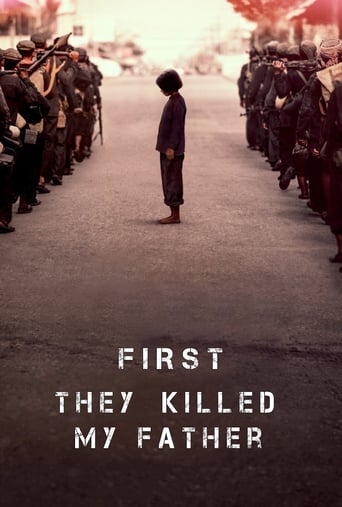AniInterview
Sorry, this movie sucks
Inclubabu
Plot so thin, it passes unnoticed.
DipitySkillful
an ambitious but ultimately ineffective debut endeavor.
Aneesa Wardle
The story, direction, characters, and writing/dialogue is akin to taking a tranquilizer shot to the neck, but everything else was so well done.
Matt Greene
Angelina Jolie has been consistently banal with her directing efforts, and this one is no different. At its best, it's skillfully edited, beautifully shot, solidly acted, and disarmingly authentic. At its worst, it's sluggish homework. There are certainly some bright spots (lead girl is incredible, battle scene is harrowing, message of forgiveness over vengeance). Still, if you wanna watch a more engaging version of a similar story, click over to another Netflix original Beasts of No Nation.
Historicon
First of all, let me start by saying 'First They Killed My Father' is not in my opinion as boring as some here have maintained, though this may be due to my long standing interest in the region and subject matter. Even so, the movie is unfortunately marred by factually incorrect anti- US propaganda via the disingenuous citation of the 'US bombing of Cambodia' as the cause of the communist Khmer Rouge ascendancy in Cambodia. I can only guess that foreign pre-sales or investment financing from Euro territories, where this film is likely to have a strong audience, essentially and implicitly 'required' an anti-US position in order to satisfy the mandate of the investors, state cultural bodies, and potential audiences.Film and media agencies in France, for instance, including Unifrance, Film France, and others have been overtly aggressive over the past decade in re-parsing re-interpreting historical events in Indochina. especially with regard to the Vietnam/Cambodia situation subsequent to the French termination at Dien Bien Phu. Their goal appears to be to distance France from any significant culpability in the Indochinese disaster, extending from Vietnam through the Cambodian tragedy under Pol Pot, Increasingly common is the obligatory citation of the 'US bombing' (usually cited as a lump bogey-man term) as a primary cause of the rise of the Khmer Rouge. See, for instance, that same device being utilized at the introduction of the recent Cambodia-related documentary, 'Don't Think I've Forgotten: The Story of Cambodia's Lost Rock and Roll', and others.Though no fan of the massive and tragic US error in Vietnam, I'm aware of few if any serious Cambodia scholars today who would argue that the US air campaign in Cambodia gave rise to the Khmer Rouge regime as a primary cause, especially when compared to more significant factors such as the role of King Sihanouk in cultivating the KR as a fighting force. An even more obvious and traceable cause would be the first exposure of Solath Sar (Pol Pol, leader of the Khmer Rouge) to communism while studying at his Lycee in Paris in the late 40's and early 50's.Aside from this, it's not clear what component of the US/ARVN tactical and strategic and tactical air campaign Ms. Jolie and her French- Cambodian producer, Rithy Panh, are referring to when they cite the US air campaign in Cambodia in the 1970's.It is true that the brief and limited MENU bombings of NVA and Viet Cong border areas was not authorized by Congress, and were therefore illegal (As were the NVA and Viet Cong incursions into Cambodia). But the filmmakers seem to be conflating the MENU operation with non-secret tactical and strategic air strikes called in by Cambodian Armed Forces (FANK) spotters against the mixed KR / NVA combatant forces. Without intervention by air in many cases, Khmer Rouge and NVA main force units would otherwise have shredded the FANK Cambodian Republic armed forces opposing them. It was only the tactical use of B52s against KR and NVA forces which prevented the capture and fall of Phnom Penh as early as 1973, for instance. In other words, without intervention by the same US bombs cited as an accelerant to the KR regime, the Cambodian genocide would otherwise started an additional two years earlier.A more courageous, honest and authentic approach with 'First They Killed my Father' may well have been to undertake and share an objective examination of other greater causes at the time, most notably Cambodian King Sihanouk's role in encouraging the rise of the KR in order to regain his throne. Finally, the involvement of other relevant powers such as China and the Soviet Union in the Indochinese/Cambodian morass would also have been well worthy of discussion.Even more courageous approach would have been to allow the author of the original book, Ms. Ung, to direct the movie herself, which in turn would have validated the movie as a true local Cambodian effort. In any case, 'First They Killed my Father', so promising in its potential, compromises itself from the start and cannot thus be considered on the same rigorous level as 'The Killing Fields'
wordproductions
I was delighted with the excellence of the acting in this movie. The children were amazing, and II loved their true emotion expressed. The history was so well played out; all production, etc. I enjoyed seeing the providential way the siblings ran across each other in their journey after being dangerously separated! Worth Seeing!
Ratanakvisay
The film is honest to the audiences. Angelina has been putting herself inside the most complex political issue of a poor country which lead to kill 2 million people from 1975 to 1979.Follow a young girls who suffered, but survived from the regime. The capacity of empathy is the capacity to put the audience into the situation of the young girl and let them experience her doubt, her pain, her loneliness and her lost.

